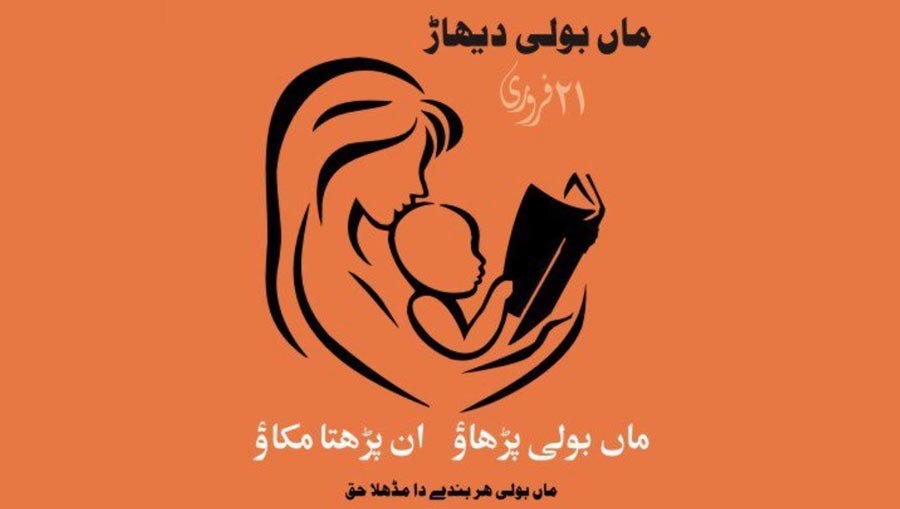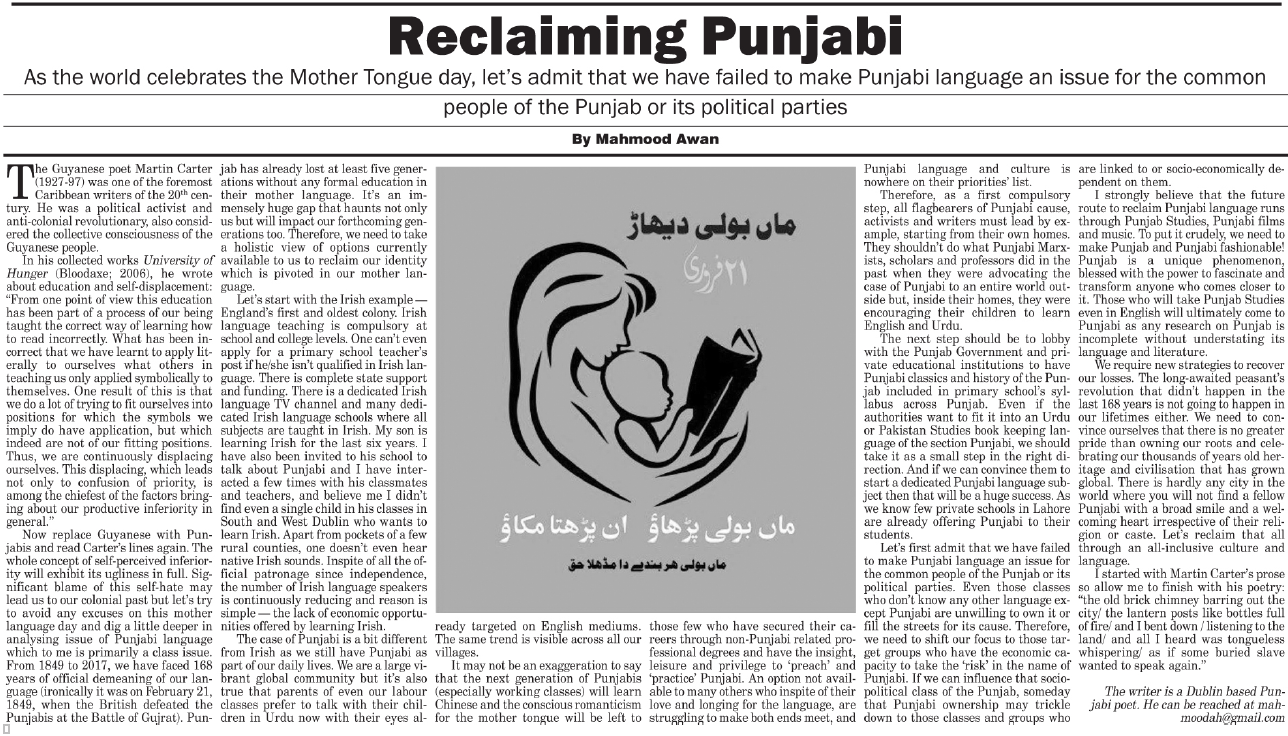Mahmood Awan (The News on Sunday, 19th February 2017)
The Guyanese poet Martin Carter (1927-97) was one of the foremost Caribbean writers of the 20th century. He was a political activist and anti-colonial revolutionary, also considered the collective consciousness of the Guyanese people.
In his collected works University of Hunger (Bloodaxe; 2006), he wrote about education and self-displacement: “From one point of view this education has been part of a process of our being taught the correct way of learning how to read incorrectly. What has been incorrect that we have learnt to apply literally to ourselves what others in teaching us only applied symbolically to themselves. One result of this is that we do a lot of trying to fit ourselves into positions for which the symbols we imply do have application, but which indeed are not of our fitting positions. Thus, we are continuously displacing ourselves. This displacing, which leads not only to confusion of priority, is among the chiefest of the factors bringing about our productive inferiority in general.”
Now replace Guyanese with Punjabis and read Carter’s lines again. The whole concept of self-perceived inferiority will exhibit its ugliness in full. Significant blame of this self-hate may lead us to our colonial past but let’s try to avoid any excuses on this mother language day and dig a little deeper in analysing issue of Punjabi language which to me is primarily a class issue. From 1849 to 2017, we have faced 168 years of official demeaning of our language (ironically it was on February 21, 1849, when the British defeated the Punjabis at the Battle of Gujrat). Punjab has already lost at least five generations without any formal education in their mother language. It’s an immensely huge gap that haunts not only us but will impact our forthcoming generations too. Therefore, we need to take a holistic view of options currently available to us to reclaim our identity which is pivoted in our mother language.
Let’s start with the Irish example — England’s first and oldest colony. Irish language teaching is compulsory at school and college levels. One can’t even apply for a primary school teacher’s post if he/she isn’t qualified in Irish language. There is complete state support and funding. There is a dedicated Irish language TV channel and many dedicated Irish language schools where all subjects are taught in Irish. My son is learning Irish for the last six years. I have also been invited to his school to talk about Punjabi and I have interacted a few times with his classmates and teachers, and believe me I didn’t find even a single child in his classes in South and West Dublin who wants to learn Irish. Apart from pockets of a few rural counties, one doesn’t even hear native Irish sounds. Inspite of all the official patronage since independence, the number of Irish language speakers is continuously reducing and reason is simple — the lack of economic opportunities offered by learning Irish.
The case of Punjabi is a bit different from Irish as we still have Punjabi as part of our daily lives. We are a large vibrant global community but it’s also true that parents of even our labour classes prefer to talk with their children in Urdu now with their eyes already targeted on English mediums. The same trend is visible across all our villages.
It may not be an exaggeration to say that the next generation of Punjabis (especially working classes) will learn Chinese and the conscious romanticism for the mother tongue will be left to those few who have secured their careers through non-Punjabi related professional degrees and have the insight, leisure and privilege to ‘preach’ and ‘practice’ Punjabi. An option not available to many others who inspite of their love and longing for the language, are struggling to make both ends meet, and Punjabi language and culture is nowhere on their priorities’ list.
Therefore, as a first compulsory step, all flagbearers of Punjabi cause, activists and writers must lead by example, starting from their own homes. They shouldn’t do what Punjabi Marxists, scholars and professors did in the past when they were advocating the case of Punjabi to an entire world outside but, inside their homes, they were encouraging their children to learn English and Urdu.
The next step should be to lobby with the Punjab Government and private educational institutions to have Punjabi classics and history of the Punjab included in primary school’s syllabus across Punjab. Even if the authorities want to fit it into an Urdu or Pakistan Studies book keeping language of the section Punjabi, we should take it as a small step in the right direction. And if we can convince them to start a dedicated Punjabi language subject then that will be a huge success. As we know few private schools in Lahore are already offering Punjabi to their students.
Let’s first admit that we have failed to make Punjabi language an issue for the common people of the Punjab or its political parties. Even those classes who don’t know any other language except Punjabi are unwilling to own it or fill the streets for its cause. Therefore, we need to shift our focus to those target groups who have the economic capacity to take the ‘risk’ in the name of Punjabi. If we can influence that socio-political class of the Punjab, someday that Punjabi ownership may trickle down to those classes and groups who are linked to or socio-economically dependent on them.
I strongly believe that the future route to reclaim Punjabi language runs through Punjab Studies, Punjabi films and music. To put it crudely, we need to make Punjab and Punjabi fashionable! Punjab is a unique phenomenon, blessed with the power to fascinate and transform anyone who comes closer to it. Those who will take Punjab Studies even in English will ultimately come to Punjabi as any research on Punjab is incomplete without understating its language and literature.
We require new strategies to recover our losses. The long-awaited peasant’s revolution that didn’t happen in the last 168 years is not going to happen in our lifetimes either. We need to convince ourselves that there is no greater pride than owning our roots and celebrating our thousands of years old heritage and civilisation that has grown global. There is hardly any city in the world where you will not find a fellow Punjabi with a broad smile and a welcoming heart irrespective of their religion or caste. Let’s reclaim that all through an all-inclusive culture and language.
I started with Martin Carter’s prose so allow me to finish with his poetry: “the old brick chimney barring out the city/ the lantern posts like bottles full of fire/ and I bent down / listening to the land/ and all I heard was tongueless whispering/ as if some buried slave wanted to speak again.”
Published on 19th February 2017 in The News on Sunday.
https://www.thenews.com.pk/tns/detail/562723-reclaiming-punjabi


